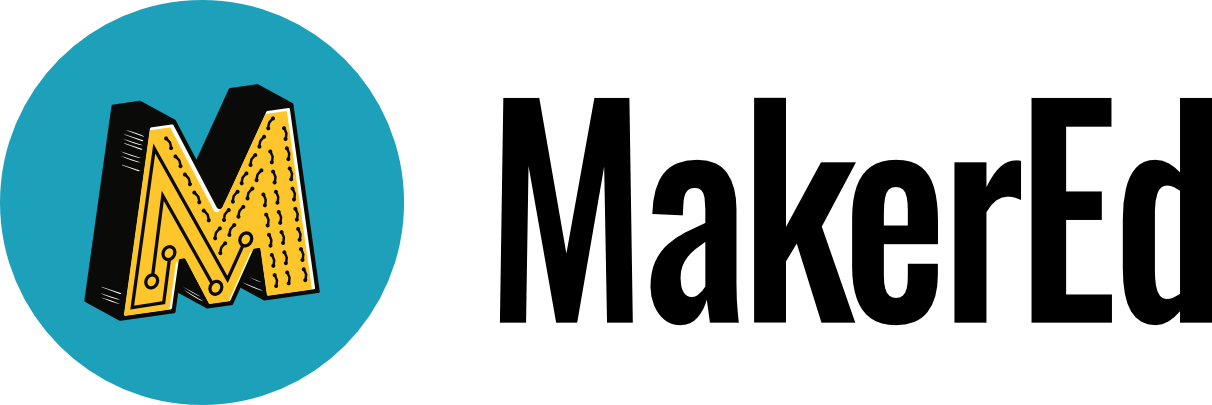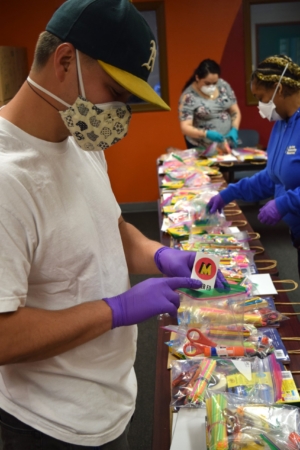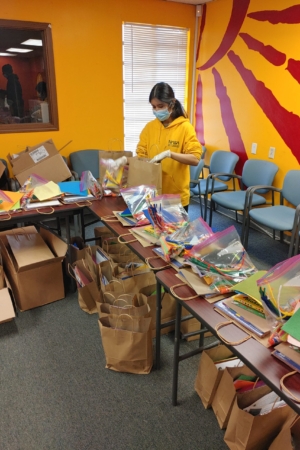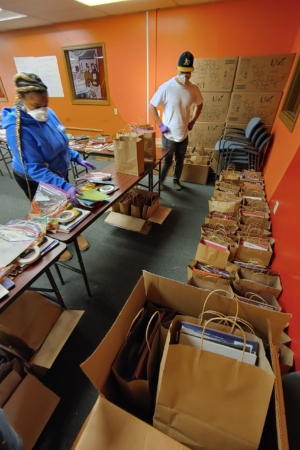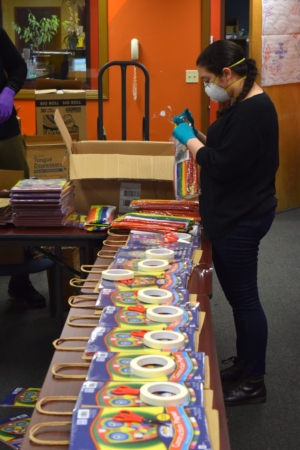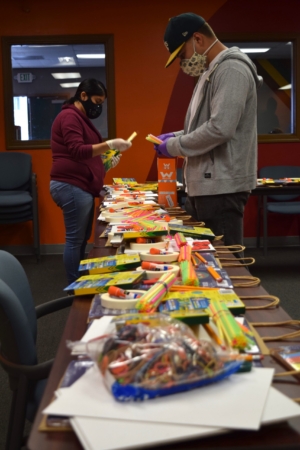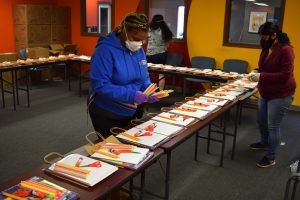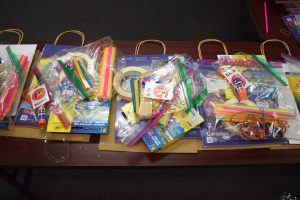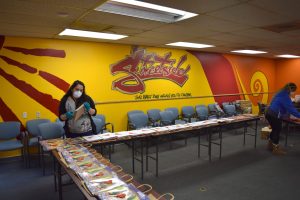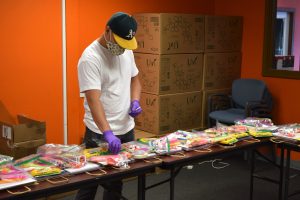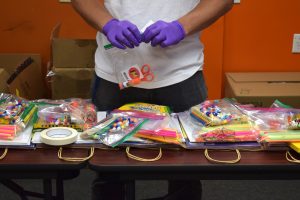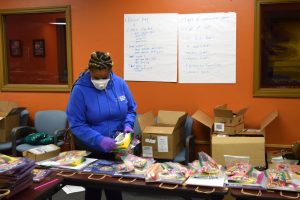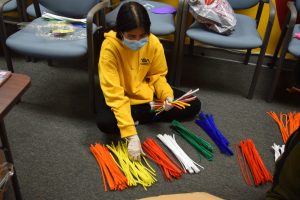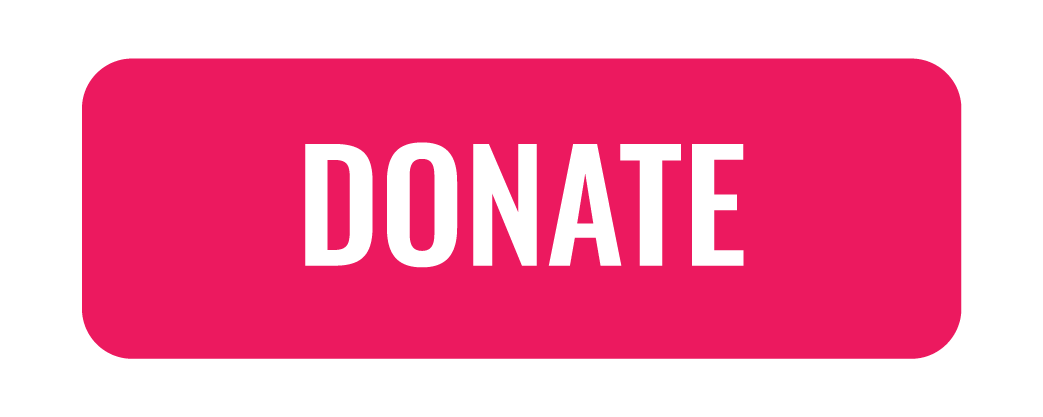 This is the first in a series of blog posts focused on how hands-on learning can be made accessible at home.
This is the first in a series of blog posts focused on how hands-on learning can be made accessible at home.
The response to the spread of COVID-19 has resulted in many sudden changes to schools and learning environments across the country, and the Bay Area is no different. Local schools’ capacities have been stretched thin by a rapid switch to distance learning. To continue to support our mission in this new learning environment, Maker Ed has creatively partnered with after school programs in Oakland Unified School District (OUSD) to ensure more students have access to hands-on learning while school buildings are closed. Read on for details about how we approached this project and what we’ve learned so far!
Home Make Kits: How It Started
Sudden school closures highlight existing access and equity issues that Oakland students and families face. On a call with local educators this spring, we heard that many families in our local public school district struggle with food insecurity. In addition, many Oakland families don’t have the technology and other materials needed to provide rich learning experiences for students at home. (According to a recent report by Berkeleyside, “25,000 Oakland public school students — roughly half of OUSD’s total student body — didn’t have adequate internet access or a computer at home, making it tough or even impossible for them to participate in online classes.”)
To support access to food for students who rely on school meal programs, OUSD provides free “Grab and Go” meals for families. As the response to COVID-19 necessitated that schools continue to remain closed, these food distribution sites quickly became a critical hub for community care and connection. Our partners asked if we could respond to the learning needs of Oakland youth and families by providing materials and projects for students as well — and of course, we jumped at the opportunity!
We believe that hands-on making is a powerful and flexible tool that can respond to the needs of youth during a global pandemic. We also know that our Oakland youth are resilient, creative, and ready to learn, and that access to technology should not determine access to rich learning experiences.
We had already started producing and broadcasting weekly “Learning In the Making: Live!” videos that feature facilitated, online activities to support at-home learning. We decided to connect these projects, and the idea of Home Make Kits was born.
We developed a list of low tech, accessible maker materials that youth could use (and re-use!) across a variety of projects, and developed bilingual project guides (in both English and Spanish, since 33% of OUSD students live in households where Spanish is the primary language), so that families and learners could come together through making. Our guides can be downloaded and printed for use offline, which is critical for families that don’t have consistent access to the internet. Each guide provides project recommendations and opportunities for reflection and documentation of discoveries and learning. Our hope is that youth will feel inspired and challenged by the projects to continue exploring making and creativity independently.
For our first pilot round of maker kits, we distributed these materials:
- Large brown paper bag
- Ziplock bags
- Masking Tape
- Glue sticks
- Crayons (box of 24)
- Rubberbands
- Colored Popsicle Sticks
- Markers (box of 10)
- 8×8” Felt/Fabric sheets
- Pipecleaners
- Pom poms
- Straws
- Construction Paper
- Scissors
- Pencils
- Large craft sticks
- Chipboard/cardboard
Assembly & Distribution
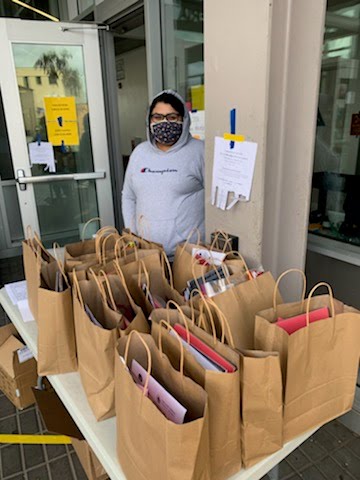 We piloted a distribution of 250 Maker Kits with educators from three afterschool agencies in partnership with OUSD Expanded Learning Department:
We piloted a distribution of 250 Maker Kits with educators from three afterschool agencies in partnership with OUSD Expanded Learning Department:
- Bay Area Community Resources (BACR)
- East Bay Asian Youth Center (EBAYC)
- Safe Passages
We gathered with educators and program leaders at the East Bay Asian Youth Center (EBAYC) office in Oakland to assemble 250 Maker Kits for our pilot run. While ensuring proper safety measures, such as providing a large space to assemble materials, as well as wearing face masks and gloves, we created stations where we could put together the materials.
Each afterschool agency distributed Home Make Kits at the school sites they work with through a variety of approaches:
- Educators set up stations at the food distribution sites and physically gave out kits to youth on Mondays and Thursdays.
- Educators made “wellness phone calls” to families in their afterschool programs to check in with their families. They either arranged for these families to pick up maker kits or educators delivered and physically dropped off maker kits to homes.
- They identified families they knew of, especially those with limited access to the internet (which limited engagement in virtual learning), that would benefit most from maker kits and delivered these kits to families throughout the week.
Documentation
For our first round of Home Make Kits, we distributed project guides for our first video series Learning in the Making: Design, where we introduced important design concepts in order to build our own dream shoes! We invited families to share their projects with us through social media or by texting. We received photos and text messages from parents highlighting the amazing projects youth completed. We also heard stories of learners who returned to the food distribution sites with their completed projects to show them to educators. We loved hearing how proud and excited learners were to show off what they made, and how their parents appreciated having materials and activities for their kids at home.
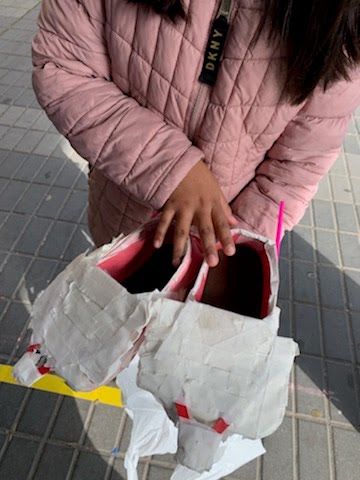
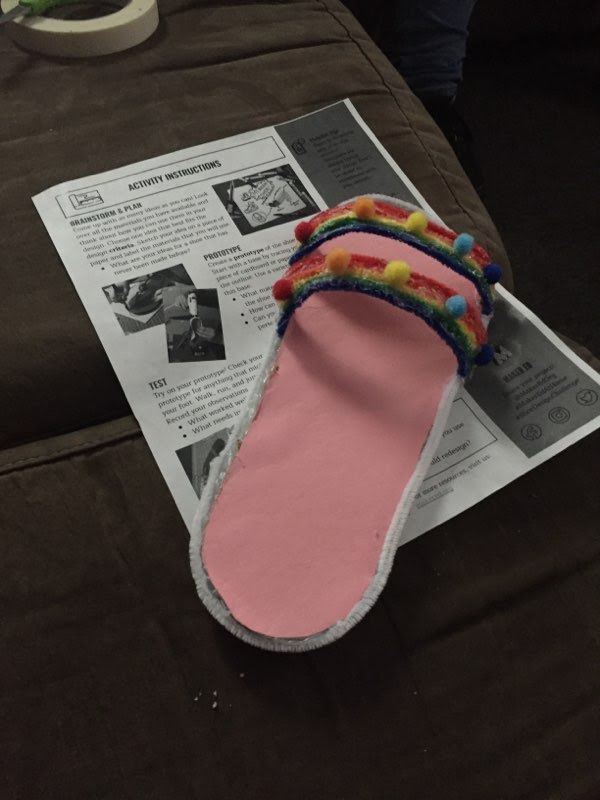
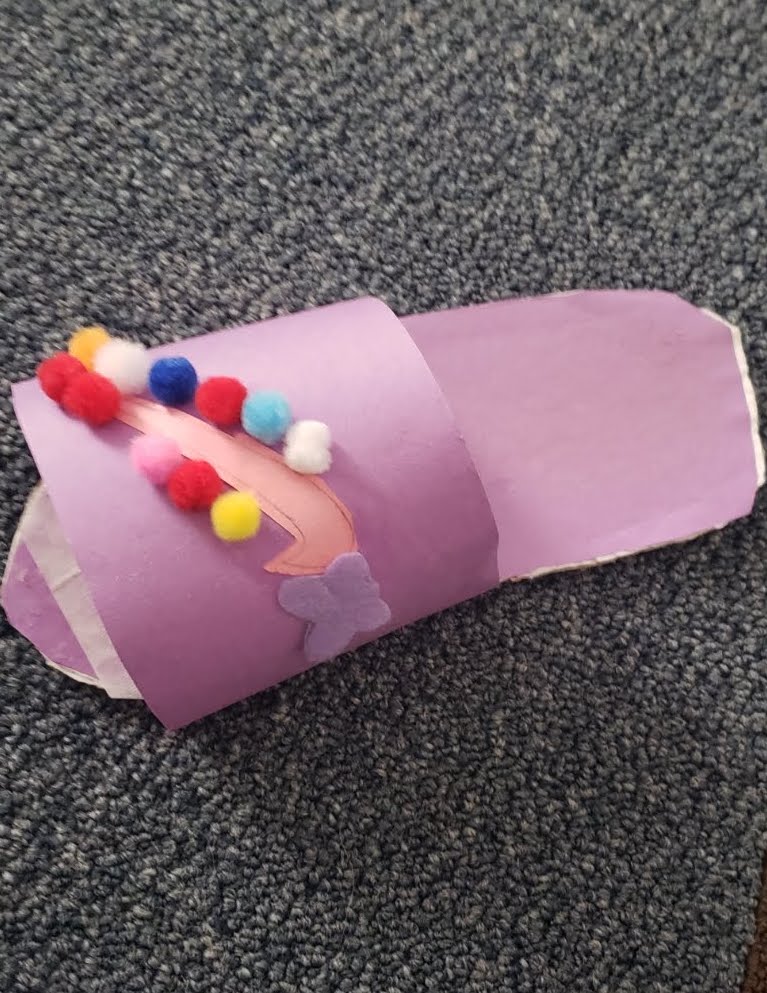
Here are just a few of the shoe designs that we received from Oakland youth!
Next Steps
As families share their projects with us, we will continue to share the impact of this project in a series of blog posts written by Dion Evans. Watch this space for stories about how OUSD students and families are exploring making at home.
During the second round, we will distribute 500 Home Make Kits to Oakland families, at weekly “Grab and Go” meal events, drive-through graduation ceremonies, and delivered directly to families’ homes. We are adding more materials to allow for a wider variety of projects, such as mini sewing kits, balloons, marbles, string, and skewers, and decreasing the cost-per-kit in order to reach more youth. Each week, through our Learning in the Making: Live! Series, we add to our collection of bilingual project guides and maker videos.
The Beta Lab at UC Davis has also been engaging in similar work with the Boys and Girls Club in Sacramento, and we hope to learn with them and others around the country doing similar work. Distributing similar sets of materials will allow project guides to be used across organizations, multiplying our collective impact. Our video and project guides are available on our website, and can be used by educators and parents anywhere to support students in hands-on making at home.
We are so grateful for our partnership with after school educators and program leaders. We are inspired by their dedication to their learners in the face of abrupt transition to distance learning and response to community crisis during a time of fear, uncertainty, and anxiety. We are also, as always, impressed by the resilience of our youth and their ability to adapt.
We would like to thank the many educators on the ground who helped deliver and distribute maker kits to families. The following community members, educators, and funders were critical in making this project happen:
- Martha Peña – Coordinator, Expanded Learning Programs, OUSD
- Meisha Marshall – Afterschool Program Coordinator, BACR
- Na’Dra Hennington – Afterschool Program Manager, BACR
- Odalys Marquez – After School Instructor at Safe Passages & OUSD Paraprofessional
- Alejandra Garcia – Program Director, Frick Impact Academy
- Craig Dittmann – Teacher and After School Instructor at MPA
- Palm (Warisara) Chiewphanit
- Dorvez Barnett
- OUSD Expanded Learning Department (through the After School Education and Safety Grant)
- Rogers Family Foundation
If you would like to support this project and help us reach our goal of distributing 1500 home make kits to Oakland youth, please consider making a donation to Maker Ed.
